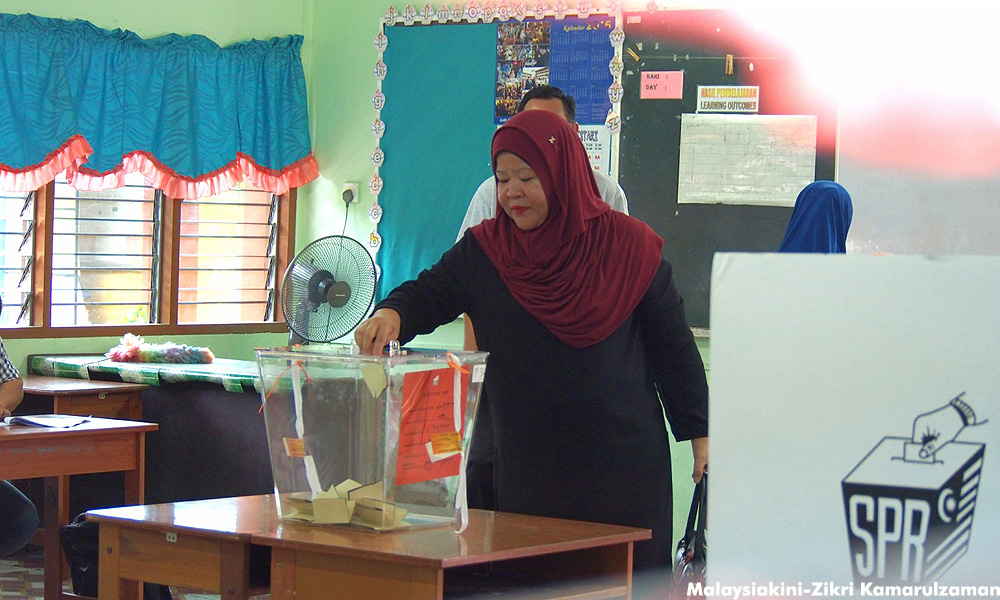
Malaysia is a prima facie example of how elections are meaningless in numerous Southeast Asian nations, which always end with the same party returning to power, according to an article published in The Diplomat.
The writer, Shrish Srivastava, attributed the poor quality of elections in Malaysia to the practices of the BN coalition.
"Methods such as gerrymandering, misuse of institutional tools, elite cohesion pacts and malapportionment have been used to retain power in the past - including by former prime minister Dr Mahathir Mohamad, just tapped by the opposition as their candidate," he wrote.
Shrish also quoted an article by scholar Kai Ostwald, titled "How to Win a Lost Election", in which the latter argued that Umno has used gerrymandering to remain in power for decades.
"The fact that, as Ostwald points out, there were only 104 districts in Malaysia at the time of independence compared to 222 in 2013 speaks volumes about gerrymandering and the resulting quality of elections," The Diplomat article states.
EC is partisan
Shrish said that Ostwald also further highlighted the use of malapportionment by BN to gain seats, where constituencies which are seen as pro-BN have fewer voters, while those which favour the opposition have more voters.
"Some amount of malapportionment is justifiable to improve the relationship between the representative and its constituents and to give fair representation to bumiputera people.
"But its excessive use by Umno has made the people lose faith in free and fair elections and derided the quality of it.
"In 2013, the use of malapportionment led to the incumbent BN winning 54 percent of parliamentary seats while losing the popular vote by a margin of around four percent.
"Ostwald insists that this has violated the 'one-person, one vote' principle, that is fundamental to any democratic institution. Thus it has undermined elections at all levels.
"This is made possible by a partisan Election Commission that has refrained from keeping checks and balances over political parties.
"The Election Commission is supposed to act as an ombudsperson, but the fact that the head of state appoints the civil servants makes it a prejudiced body.
"Such practices have hollowed out the essence of elections in Malaysia. Though elections may have been frequent, they have always been well prepared for in advance by the ruling party," he added.
Will 2018 be a new low?
Shrish also highlighted another article, "Bound to Rule" by Jason Brownlee, which explores Mahathir's domination of both national and party elections.
"Mahathir faced opposition from some factions of Umno in the 1980s. Tengku Razaleigh Hamzah and Musa Hitam, two prominent members of the party, rallied against Mahathir and ran for party president and vice-president.
"To counter this challenge, Mahathir 'prevailed by distributing cabinet and party positions to undecided delegation leaders', according to Brownlee. After he won the elections, however, he got rid of the seven people in his cabinet who were not his supporters," he said
Shrish argued that when the outcome is already apparent, elections hardly hold any value and in Malaysia, the most important facet of a democracy has been reduced to a secondary process.
"Gerrymandering, malapportionment and the misuse of institutional tools are all methods used by the ruling coalition to manipulate the electoral process.
"This has directly as well as indirectly degraded the quality of elections and has eroded the faith of scholars in the Malaysian electoral system.
"With Mahathir as the opposition candidate now, it will be interesting to see if this year's elections will be fair and square or whether the Najib Razak government will degrade the electoral practice to a new low," Shrish added.- Mkini



No comments:
Post a Comment
Note: Only a member of this blog may post a comment.